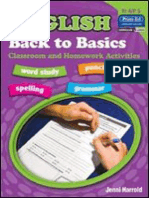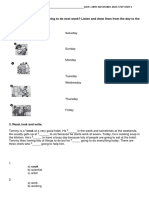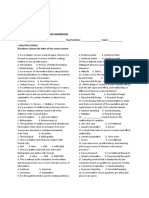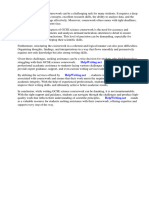0% found this document useful (0 votes)
50 views5 pagesEnglish Language (Basic To Advance)
The document outlines a comprehensive syllabus for English language learning, covering both basic and advanced levels. It includes topics such as introductions, vocabulary building, grammar, communication skills, and functional English for everyday situations. The advanced section focuses on complex sentences, tenses, conditionals, passive voice, and academic writing skills.
Uploaded by
ccsngo2025Copyright
© © All Rights Reserved
We take content rights seriously. If you suspect this is your content, claim it here.
Available Formats
Download as DOCX, PDF, TXT or read online on Scribd
0% found this document useful (0 votes)
50 views5 pagesEnglish Language (Basic To Advance)
The document outlines a comprehensive syllabus for English language learning, covering both basic and advanced levels. It includes topics such as introductions, vocabulary building, grammar, communication skills, and functional English for everyday situations. The advanced section focuses on complex sentences, tenses, conditionals, passive voice, and academic writing skills.
Uploaded by
ccsngo2025Copyright
© © All Rights Reserved
We take content rights seriously. If you suspect this is your content, claim it here.
Available Formats
Download as DOCX, PDF, TXT or read online on Scribd
/ 5



















































































